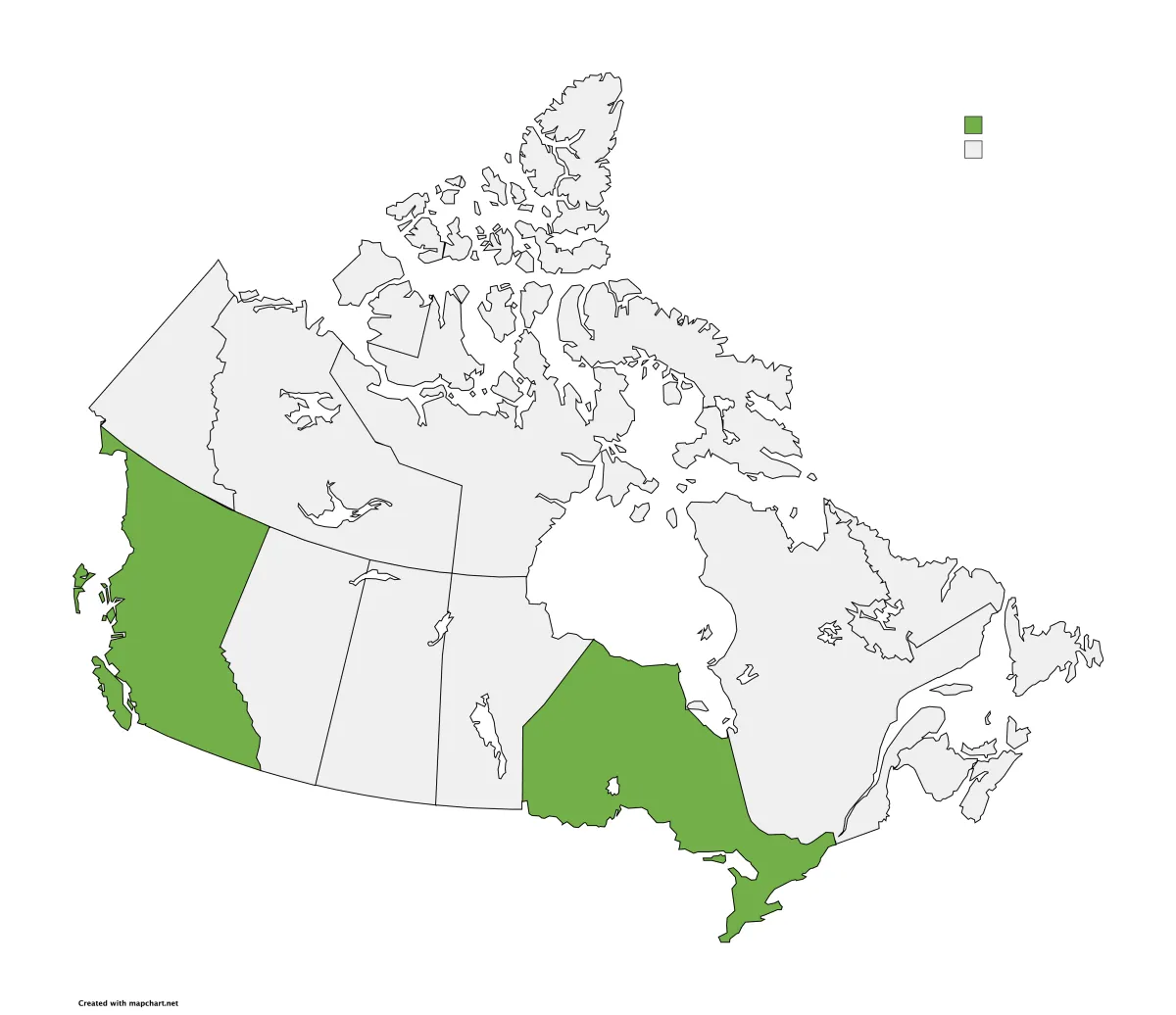
Services Tailored to Your Needs
Financial Consultations
A Financial Needs Analysis (FNA) is a complimentary service that shows you where you are financially, what you are doing well, and where you could use help. This is the first step to achieving your definition of wealth.
Make sure you have your financial "ducks in a row"
Uncover or discuss your financial goals
Create a tailored plan to take action to achieve your goals
Family/Income Protection
Based on your Financial Needs Analysis, we may find that your family and/or personal income needs protection, otherwise known as insurance. Insurance strategies will ensure that your household is protected against life's unexpected events.
Term life insurance
Whole life insurance
More...
Investing
We offer 2 main ways to invest: (1) Wealth Building and (2) Cashflow-planning
Wealth Building Strategies get you set up with registered account and investment vehicles to systematically build your wealth over time in a way that fits your personal goals. These products are great for families earlier in life.
Cash Flow Planning is typically best for those of you who are closer to retirement or have experienced a life event (like selling a business) that requires you to look at how the next chapter of your life will be funded.

Confidence that you’re working towards your wealth goals
No more money anxiety keeping you up at night. We’ll cut through confusing financial terms and concepts, making sure that you understand and feel empowered in your financial decisions.

A tailored financial plan made just for you and your family
We’ll work through what wealth means to you and show you steps that can be taken to get you there. We understand your definition of wealth is unique, and so should your plan.

On-going support to adapt to the changes in your life
We’re here to support you over the long term. As your life changes, so do your financial needs.
Secure your financial future.
Click below to book your FREE consultation.
Meet Our Team

Cody Boekestyn,
Financial Advisor

Ayla De Grandpré, Communications & Marketing Specialist
"Working with Cody has been nothing short of fantastic. He's down to earth, knowledgeable, and explains concepts in a way that I can understand. Unlike previous experiences with financial advisors, I can genuinely say I feel more comfortable and confident in my retirement future ever since I started working with him..."
- Mark, Obsidian Financial Client
Our Location and Where We Work with our Clients
We’re currently situated in the beautiful city of Kelowna, British Columbia. We work with people like you who live in British Columbia, and Ontario, Canada. Most of our appointments take place virtually, however we may be able to meet with you in person if you live in the Kelowna area.


Our Blog

Do I Really Need Life Insurance? Understanding Your Insurable Interests
Walking into the world of insurance often feels intimidatingly similar to walking into the Minutaur’s Labyrinth. With so many options and people offering you (sometimes unsolicited) advice, it’s easy to feel a bit disorientated, or even immobilized by questions like:
How do I know if I need an insurance policy?
Which insurance product is right for me? and how much insurance should I get?
Who can I trust for advice?
For many, this uncertainty leads to inaction. But let's demystify insurance together. The key lies in understanding your "Insurable Interest."

What’s an insurable interest?
There are actually very clear and logical ways that your insurance need is determined and calculated. And that is - well, if you pieced it together from the title already, it's your....
“insurable interest”
In plain english, your insurable interest is the financial stake that you have if something or someone is damaged, destroyed, or lost, and you (or your family) experience financial hardship as a result.
So, the question of whether you need insurance really boils down to the “what ifs”, or those unexpected events that inevitably happen in life, and being able to envision how they would affect your family’s quality of life.
Examples of Insurable Interest: The "What Ifs..."
What if my new car is destroyed? How will I afford repairs or a replacement?
Unexpected, costly repairs can strain your finances, particularly with an existing car loan. Comprehensive auto insurance ensures you don't have to compromise your family's lifestyle.
What if I become seriously ill or can’t work because of an injury? How will I provide for my family?
Illness or injury can lead to a double financial burden of medical expenses and lost income, which may impact your family's future. Disability insurance offers a safety net.
What if my home is destroyed in a forest fire? How will I manage the mortgage and find a new home?
The loss of a home is devastating, leaving you with a mortgage for a non-existent property. Homeowners' insurance is critical for financial and emotional recovery.
What happens if I unexpectedly die? Will my family be looked after?
Life insurance ensures your family can cover immediate expenses and maintain their lifestyle, even in your absence.
Do any of these resonate with you?

Zooming in: The importance of life insurance
While there are many types of insurable interests, we’re going to stay true to the title of this article and focus on life insurance.
So, Who Can Have an Insurable Interest?
When thinking about insurable interest, it’s helpful to think about you but also those around you: your spouse, children, parents, or even your employer.
If something were to happen to you, would they be financially impacted for the worse?
If the answer is yes, then you would have an insurable interest in your life, and typically, this would make whoever you thought of the beneficiary of the insurance policy.
4 Common Types of Insurance Interests
There are a TONNE of insurable interests that we could cover. For simplicity's sake, we’ll stick with 4 of the most common types of insurable interests on the personal side of things. These include:
Income/family protection
Inheritance and estate protection
Mortgage/debt insurance
Education purposes
Now, we'll go through each of these to understand them a bit better.

Income/Family Protection
What could be more fun than quantifying your life to a few numbers? Anything, really… But, as we’ve written about previously, thinking about your death (or even quantifying it) can actually make your life better.
By far the most common reason that people will get life insurance is for income protection. If your family relies on your income for their quality of life, and all of a sudden that income was taken away due to illness, injury, or even death, things would probably become pretty dire.
Meet Casey, a 37 year old corporate accountant married to Suzy, a stay at home mom for their 2 and 5 year old daughters. Casey earns 100k in after tax income, supporting a mortgage that gives them the space they need to raise their two girls in a great neighbourhood. Casey has a major insurable interest. As you can see, without his income, the family would be extremely vulnerable if anything were to happen to him.
But how do you know how much income/family protection insurance you need?
Continuing on with Casey’s case study, there are a couple of ways to determine how much life insurance he might need.
Method 1
Take Casey’s after tax income (100k) and divide it by 5%.
100k/0.05 = 2 million dollars of coverage.
The idea here is that, if Casey dies, Suzy gets a lump sum of 2 million dollars. If she then invested this and earned 5% a year, she would replace Casey’s income and the family would not have to take a reduction in lifestyle.
Note that there are a lot of assumptions at play here, and a lot of considerations NOT taken into account, like tax and investment performance, which are variable. This case study is intended to exemplify how insurance needs are commonly calculated, but SHOULD NOT be taken as advice. You’ll always consult a qualified advisor before purchasing life insurance, who should be able to go over these factors with you, for your unique situation.
Method 2
We could also Take Casey’s after tax income of 100k and multiply it by the years that the insurance policy is required (e.g., if Casey wants to insure his income for the duration of his mortgage - let’s say, the next 20 years).
100k x 20 = 2 million dollars
In this calculation, if Casey died, Suzy would receive 2 million dollars which would allow her to pay off their mortgage and relieve her of the stress of downgrading her lifestyle and finding a new home while grieving her husband.
The bottom line is that there are many scenarios where someone would need income replacement, but the question that starts this process is always the same:
What would happen if [x person’s] income were to suddenly go away?

Inheritance and Estate Protection
For those of you who have accumulated assets (think investments, real estate, etc.) of over the years, you may have thought to yourself at some point:
“What would happen if I die tomorrow?”
Well, the short answer is: taxes.
Taxes? Yep, taxes. When you die, your assets attract taxes that are dependent upon many factors - things like account and asset type, cost base, and appreciation.
If your eyes are glazing over, that’s okay. This isn’t a blog about taxes, so if you want to know more about this,, talking to a tax specialist is probably your best bet.
The key takeaway is this:
What you are wanting to leave your estate (most likely your children), will be LESS after your death because taxes are going to bite into the value.
This is why you would purchase life insurance, which would cover the tax bill and pass your hard earned money on to your family.

Mortgage/ Debt Insurance
This type of insurance is fairly straightforward compared to the two examples above. If you have a mortgage or any other type of substantial debt in your name, then when you die, you probably don’t want your family to be stuck with that tab.
As shown above in Casey’s example, life insurance can be a useful way to prevent a lifestyle decline for your family should you pass away.

Education purposes
If you are a younger family and you’re thinking about or having already started saving for your child’s education, well done. You have time on your side, making it more likely that you’ll reach your savings goal before Oliver goes off to university or college.
But have you ever thought of what would happen to your child’s education savings if you were to pass?
Maybe you’re currently 2 years into a 15 year RESP strategy. If you were to die next year, the RESP would be incomplete and the 15 year strategy may go unfulfilled.
Life insurance can work to fill this gap, ensuring that your precious children are given the best chance to do whatever fills them up and gives them a brighter future, without incurring crippling student debt.

In summary,
An insurable interest is the financial stake that you have if something or someone is damaged, destroyed, or lost, and you (or your family) experienced financial hardship as a result.
The way you know if you have an insurable interest by asking the question: If something were to happen to you, would they be financially impacted for the worse? If the answer is yes, you likely have an insurable interest.
We only covered 4 common types of insurable interest: Income/family protection, inheritance and estate protection, mortgage/debt insurance, and education purposes. For each of these, a tailored life insurance strategy can help you and your family feel at ease and avoid a lifestyle decline, should you pass away.
Determining your coverage amount doesn’t need to seem so confusing. There are calculations that your advisor uses to make sure that you have the right amount of coverage for your goals. Whether your insurable interest is temporary (e.g., covering your mortgage term) or a life-long interest (e.g., estate creation), a qualified professional should be able to walk you through your options in a way that is clear, transparent, and takes your unique life path into consideration.
As always, the intention of this blog is not to provide advice, it is simply to educate. Contact your financial advisor to get started in determining if and what life insurance might be right for you.
Get started with us for free, today.
Want to keep in touch?
Sign up to receive our monthly newsletter to receive news and updates.
Monthly newsletters include exciting updates and links to new informative blog content and education.






